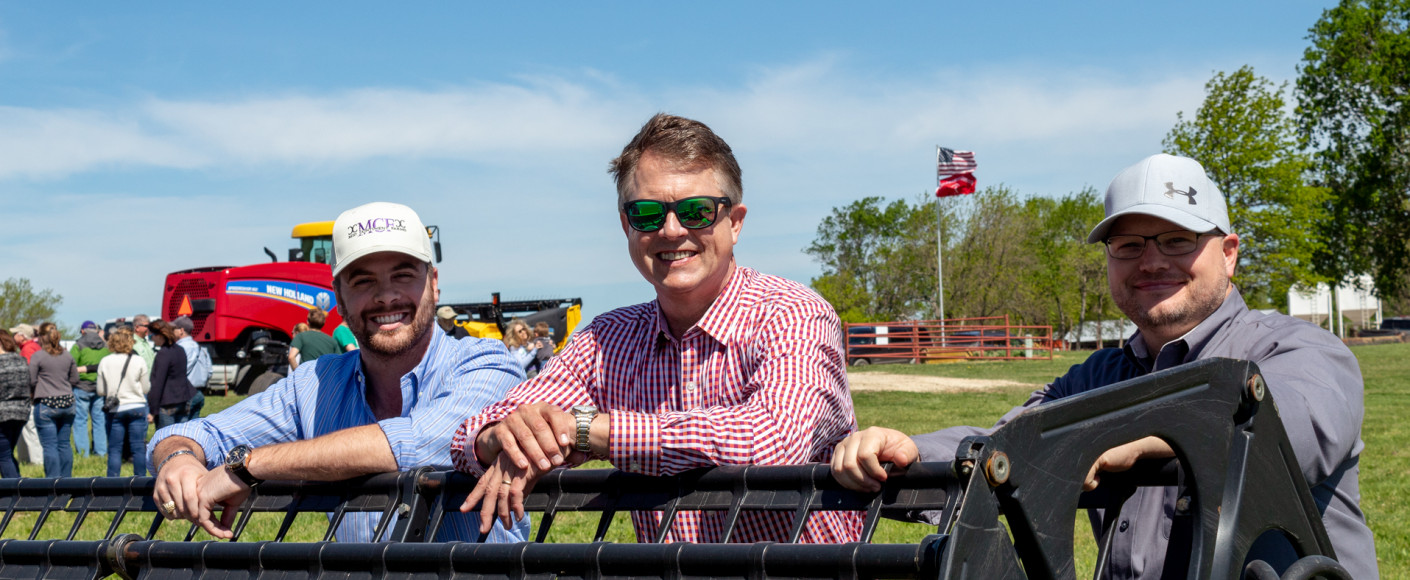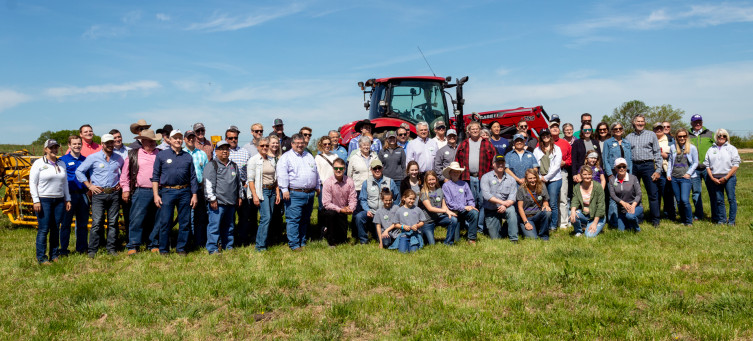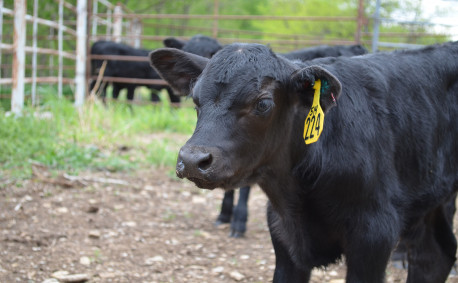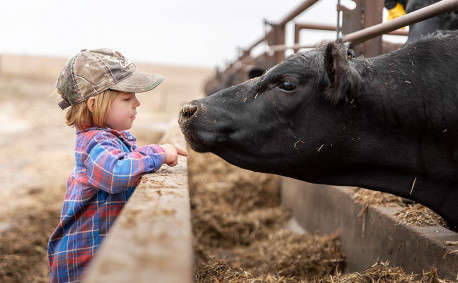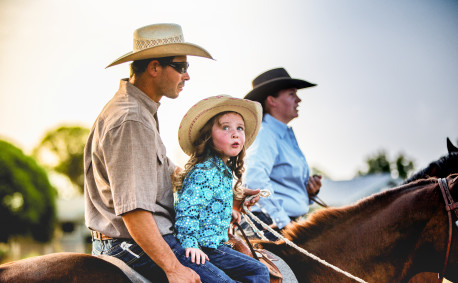Kansas Lawmakers Experience Life on a Farm
What happens on the farm doesn’t stay on the farm. It affects all of us — from the food we eat to the economy of Kansas to our very culture. That’s why events like Day at the Ranch are so important.
Day at the Ranch is an annual event that introduces people to what life on a farm is really like. The passionate farm families who host the event open their fields and hearts to give attendees a firsthand look at what happens on the farm.
“We want those that don't have a connection to a farm or ranch to be able to see firsthand the care that goes into growing their food,” said Jamie Lindamood, Greenwood County Cattlewomen. “With only two to three percent of Americans farming and ranching in 2019, there is a lack of understanding as to what happens on the farm. People should want to know where their food comes from, but they should get the answers from the people that are growing it.”
This year, the event’s organizers invited state and industry policy-makers to observe different aspects of the farming business, including planting, spraying, harvesting, genetically modified organisms (GMOs) and feeding cattle.
“Policy-makers are consumers too! They have the same questions moms do about their food and how it's raised,” Jamie said.
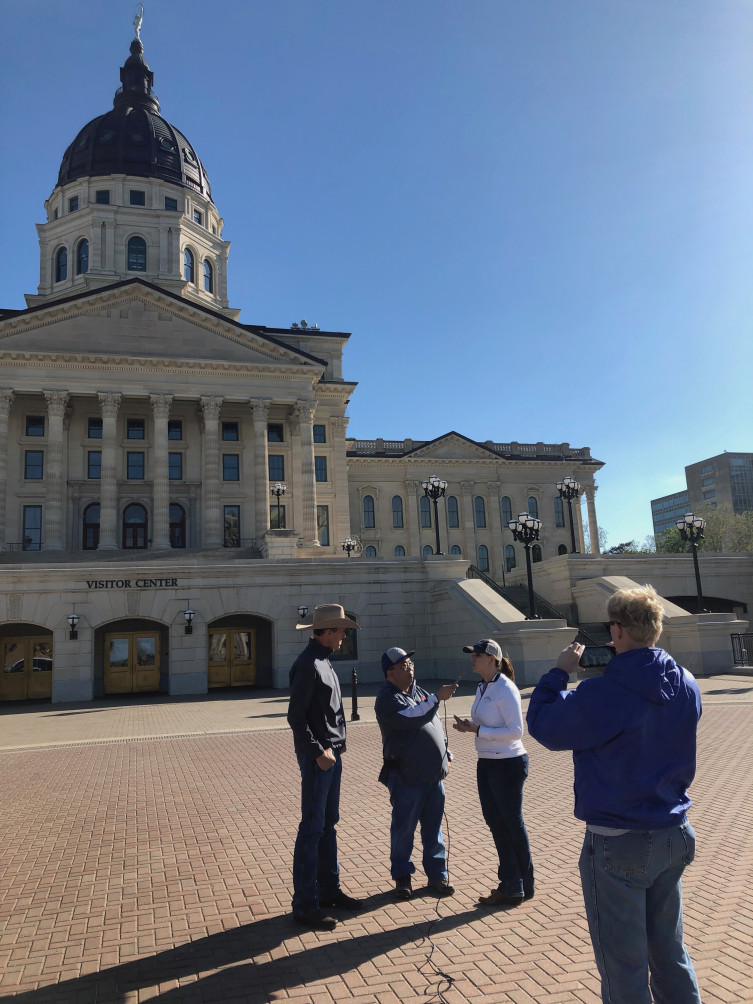 Participants learned about the technology and equipment farmers use, as well as many of the issues facing them in today’s market. We caught up with several attendees to share what struck them about the event and what they wished more people could experience.
Participants learned about the technology and equipment farmers use, as well as many of the issues facing them in today’s market. We caught up with several attendees to share what struck them about the event and what they wished more people could experience.
“It’s common for people involved in agriculture to visit the city, but it is less common for urban folks to see the vast open land that their food, fiber, and fuel is grown on. I think eyes-on experiences can go a long way to prove the sustainability of modern agricultural practices and show the care farmers and ranchers take in growing food for their families and those around the world.
Modern agriculture is the only reason there is still tallgrass prairie. Ranchers and their livestock work together to maintain that habitat when only four percent of it remains. Without ranchers and their livestock, that grassland would turn into woodland relatively quickly, thus destroying the largest continuous area of tallgrass prairie left in the world.” Tucker Stewart, associate counsel of the Kansas Livestock Association
“Agriculture is the backbone of my district. The great people who raise our crops and livestock are some of the most responsible and caring folks I know. Technology and new, innovative farming practices allow our producers to do more with fewer inputs while providing consumers the safest and most affordable food supply in the world.
Right now, things are hard for folks in agriculture, but I continue to advocate for improved trade deals and new markets for our goods. I am honored to represent the Kansas agriculture industry in Washington, D.C., and I applaud the hard work of farm families across our great state.” Dr. Roger Marshall, U.S. House of Representatives
“I think all Kansans need to realize that growers are really at the mercy of so many things like weather, yields, markets and policy. I have an even greater appreciation for the farmers and ranchers of Kansas.” Rep. Steve Watkins, U.S. House of Representatives
Agriculture accounts for over 42 percent of the state economy. Beyond that is the vital role agriculture plays in our culture and history. It used to be that about half of the United States population farmed. Today, that figure is down to two percent.
“I wish all Kansans could see the care and work farming and ranching Kansans put into raising their food. In our country, we are lucky to have the safest food supply in the world and Kansans play a major role in that,” Jamie said. “It would be wonderful if everyone could visit a farm and see what goes into it firsthand. Kansas is a beautiful place to call home. We should be proud of our agriculture.”
With so many people disconnected from farming, policy-makers said educating the public about where their food comes from is vital.
“I think bridging the disconnect from the farm to the dinner plate is preeminently important. Not only could agricultural producers learn more about the process that occurs well after products leave their farm, but just as importantly, we need to educate the consumers of our goods about the process that occurs before products leave the farm.” Tucker Stewart
“The agricultural community and these growers care very deeply about these products. They work so incredibly hard to contribute to this great economy, to feed the state, the country and the world.” Rep. Steve Watkins

